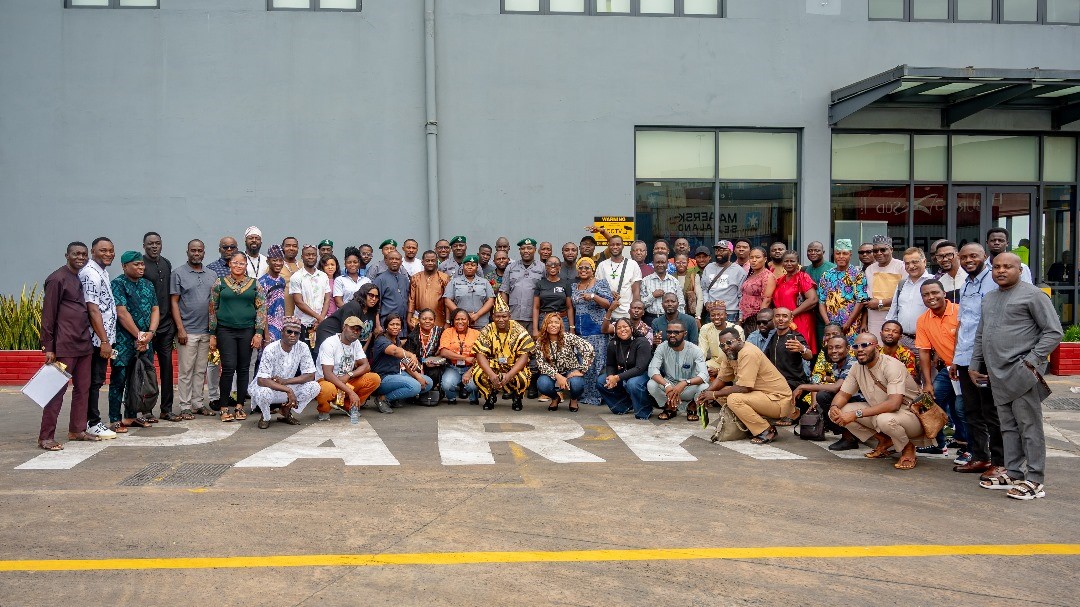In an effort to enhance trade facilitation and optimise cargo clearance processes at Nigeria’s busiest seaport, APM Terminals Apapa has partnered with the Nigeria Customs Service (NCS) to accelerate the deployment of the B’Odogwu unified customs management platform at the Lagos Port Complex, Apapa.
The B’Odogwu, a next-generation replacement for the Nigeria Integrated Customs Information System (NICIS II), is designed to modernise port operations through digital process optimization, improved transparency, and expedited goods clearance.
However, the migration has thrown up some challenges for stakeholders across the logistics and freight forwarding landscape. In response to customers’ feedback during this transitional phase, APM Terminals Apapa, in collaboration with the NCS, hosted a comprehensive training session for consignees and clearing agents in Lagos last Friday.
The initiative provided a platform for dialogue and learning as stakeholders navigated the intricacies of the new customs framework.
Speaking at the event, Olayinka Akinlade, Head of Government Relations at APM Terminals Apapa, explained that the training was prompted by findings from an internal review that highlighted a decline in cleared cargo volumes.
“Despite a surge in discharged imports, container movement from the terminal was not as seamless as expected. Our market survey revealed that the migration to B’Odogwu was the primary factor behind the slowdown,” she said.
To address the concerns, APM Terminals partnered with NCS to conduct sensitization and resolution-focused training aimed at equipping stakeholders with the tools and knowledge necessary for effective engagement with the new system.
Akinlade said, “This partnership was warmly welcomed by the Customs Area Controller of the Apapa Command, Comptroller Babatunde Olomu.”
Further bolstering support, she announced the launch of the APM Terminals–Customs B’Odogwu Clinic—a dedicated resolution hub offering real-time assistance with documentation, shipment processing, and platform navigation.
“The Clinic will promote transparency and ensure operational issues are resolved swiftly. It will ensure that problems encountered during daily operations are addressed promptly and transparently,” she added.
Speaking at the event, Assistant Comptroller of Customs, Aondona Fanyam, acknowledged the initial difficulties with the system’s rollout, citing issues such as bank payment visibility and procedural ambiguities.
He reassured attendees that these obstacles were being actively addressed and emphasized Customs’ commitment to continued engagement. “We remain committed to ongoing training and direct interaction with stakeholders,” Fanyam stated.
Industry participants lauded the initiative for its clarity and collaborative spirit. Deputy Chairman of the Clearing and Forwarding Trade Group at the Lagos Chamber of Commerce and Industry, Ikenna Nwosu, praised the proactive partnership between APM Terminals and the NCS and expressed optimism about overcoming early challenges.
Logistics Manager at Raine Industries Limited, Godstime Ifenudo, reflected positively on the experience, stating, “This seminar offered vital clarity. It resolved many uncertainties we’ve faced. I truly appreciate APM Terminals for facilitating this, especially for involving Customs officials to answer our questions directly.”
Echoing similar sentiments, Logistics Supervisor for GAC Motors, Uche Michael, highlighted the transparency and responsiveness demonstrated during the training.
“The session was immensely valuable. We were able to voice our real-world concerns and understand Customs’ perspective. The dialogue was honest, and it gave us confidence that the system will improve over time,” he said.
The session underscored a mutual commitment to fostering a seamless transition to the B’Odogwu platform, ensuring continued efficiency and stakeholder engagement in Nigeria’s maritime sector.
